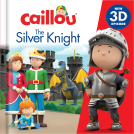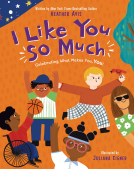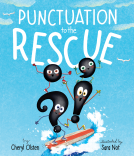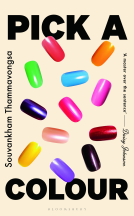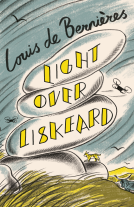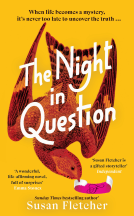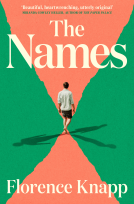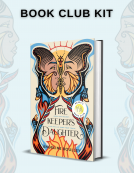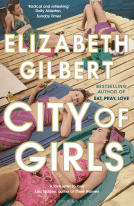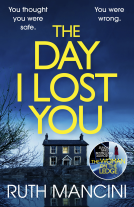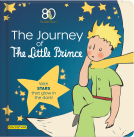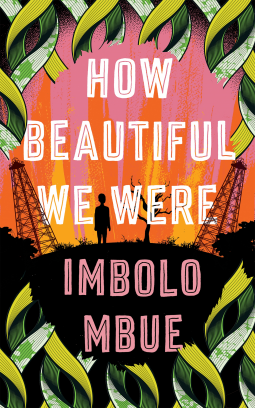
How Beautiful We Were
by Imbolo Mbue
This title was previously available on NetGalley and is now archived.
Send NetGalley books directly to your Kindle or Kindle app
1
To read on a Kindle or Kindle app, please add kindle@netgalley.com as an approved email address to receive files in your Amazon account. Click here for step-by-step instructions.
2
Also find your Kindle email address within your Amazon account, and enter it here.
Pub Date 11 Mar 2021 | Archive Date 11 Mar 2021
Talking about this book? Use #HowBeautifulWeWere #NetGalley. More hashtag tips!
Description
From the author of the New York Times bestseller Behold the Dreamers, comes a sweeping story about the collision of a small African village and an American oil company
Set in the fictional African village of Kosawa, How Beautiful We Were tells the story of a people living in fear amidst environmental degradation wrought by an American oil company. Pipeline spills have rendered farmlands infertile. Children are dying from drinking toxic water. Promises of clean-up and financial reparations to the villagers are made – and ignored. The country’s government, led by a brazen dictator, exists to serve its own interest only. Left with few choices, the people of Kosawa decide to fight back. But their fight will come at a steep price, one which generation after generation will have to pay.
Told through the perspective of a generation of children and the family of a girl named Thula, How Beautiful We Were is a masterful exploration of what happens when the reckless drive for profit, coupled with the ghost of colonialism, comes up against one community’s determination to hold onto its ancestral land and a young woman’s willingness to sacrifice everything for the sake of her people’s freedom.
Advance Praise
'The unforgettable story of a community on the wrong end of Western greed, How Beautiful We Were will enthral you, appal you and show you what is possible when a few people stand up and say this is not right. A masterful novel by a spellbinding writer engaged with the most urgent questions of our day'
DAVID EBERSHOFF, New York Times bestselling author of THE DANISH GIRL
'Imbolo Mbue would be a formidable storyteller anywhere, in any language. It’s our good luck that she and her stories are American'
JONATHAN FRANZEN
'How Beautiful We Were goes to the heart of one of the most urgent matters of the day. The highly suspenseful story of an African village’s struggle for survival and justice in the face of ruthless American corporate greed is written with remarkable acuity and compassion. Mbue has given us a book with the richness and power of a great contemporary fable, and a heroine for our time'
SIGRID NUNEZ, author of THE FRIEND, winner of the National Book Award
'Imbolo Mbue is a breathtaking talent'
CHRISTINA BAKER KLINE, New York Times bestselling author of ORPHAN TRAIN
'Who is this Imbolo Mbue and where has she been hiding? Her writing is startlingly beautiful, thoughtful, and both timely and timeless'
JACQUELINE WOODSON, National Book Award-winning author of RED AT BONE
'Mbue is a bright and captivating storyteller'
Washington Post
'Imbolo Mbue is a storyteller of astonishing gifts, which she uses in her second novel to lead us deep into the lives of a village decimated by environmental devastation and corporate greed. How Beautiful We Were reminds me of how interconnected we remain, no matter who or where we are'
TRACY K. SMITH, author of LIFE ON MARS, winner of the Pulitzer Prize
'Among the many virtues of Mbue’s novel is the way it uses an ecological nightmare to frame a vivid and stirring picture of human beings’ asserting their value to the world, whether the world cares about them or not. One can both grieve for Kosawa and be inspired by its determined fight for life'
Kirkus Reviews (starred review)
Available Editions
| EDITION | Hardcover |
| ISBN | 9781838851347 |
| PRICE | £14.99 (GBP) |
Featured Reviews
I absolutely loved this story told from the viewpoint of various members of the main family. Kosawa is in for a fight for survival suffering the after effects of colonialism to then be subjugated by American oil entrepreneurs. The villagers fight not only for their land and beliefs but their survival. In a tale that is reminiscent of Erin Brokovich it's pulls at the heart strings and makes you empathise with Thula who leaves for a better education only to become a revolutionary.
How Beautiful We Were by Imbolo Mbue is a powerful novel delving into the human tragedies that occur when Western greed invades African resources.
It is Ms. Mbue’s second novel and it is just as mesmerizing and enthralling as her first!
The story is told from multiple perspectives – it alternates between a group of “age-mates” children, all friends of Thula, and Thula’s family members. Each character is masterfully created through backstories, folk-lore and current day events and each one is worthy of the deep connection that I felt for them all.
It’s a heart-wrenching novel of love, family, sacrifice, determination and hope. It’s beautiful and unforgettable. The narrative flows slowly yet deeply and although it’s filled with sadness at what communities do to each other, it will leave you feeling hopeful, and with a desire to walk through the village of Kosawa, laugh with the descendants of the Leopard people and hope to be blessed by the Spirit.
#netgalley #howbeautifulwewere #imbolombue #canongate
“No matter their pretenses, they all arrive here believing they have the power to take from us or give to us whatever will satisfy their endless wants.”
Where to start ... I've just finished this and am lost for words. It has touched me in so many ways, stirred a kaleidoscope of emotions. I'm angry, depressed, aghast at the arrogance and cruelty of mankind. But at the same time, utterly in awe of the resilience of the human spirit.
We're somewhere in Africa, in the village of Kosawa, where children are dying. The water they drink is contaminated. The air they breath is polluted. And the soil that grows their food is laced with toxins.
Pexton is the American oil company camped out on Kosawa's doorstep. Convinced of its superiority, and driven by greed and recklessness, it is callously heedless to the suffering its drilling and flaring is causing the villagers. All it has to offer are platitudes and empty promises; the endless repetition of “old lies in new words”. And it has the audacity to believe that's enough.
How Beautiful We Were is the story of Kosowa's 40-year struggle — against Pexton and a corrupt government— to reclaim its land and its livelihood. Its fight to keep its children safe and bequeath to them a secure future in a village that is their earthly and spiritual home. We see their struggle through the eyes of three generations; their hope dimming with each passing decade.
Mbue's narrative is forceful and compelling; its power coming from the way she humanizes problems that, by and large, are beyond our direct experience: the craven lust for power and wealth that rides roughshod over dignity, respect and morality.
This story is a fiction, but it is rooted in a monstrous reality. I tip my hat to Mbue for shining a light on the wrongs that have been done and continue to be done in the name of “progress”.
You cannot read this without being left with a bittersweet feeling of sadness for the beauty of spirit that was stripped away, mingled with wonder and joy that it existed.
A fascinating and beautiful read, richly written by Mbue. This is a novel I will be gifting and rereading upon its release next year. Just stunning.
I read Imbolo Mbue’s first novel, ‘Behold The Dreamers’, earlier this year and absolutely loved her writing and storytelling - it was easily a five star read. So when I heard her second novel was open to reviews, I jumped at the chance to dive into yet another marvellous feat of storytelling.
‘How Beautiful We Were’ did not disappoint - the writing is beautiful and the story is brutally honest and breathtaking. The hard truths of capitalism and its consequences on an impoverished African village are conveyed perfectly in the authors choice of language and character perspectives.
The global pursuit for oil and the devastation it leaves on innocent people and their lands is an issue I’ve been left thinking about since finishing this book. I’m now acutely aware of the parallels that are still happening in our world today.
I will certainly read Mbue’s future novels - I do hope she has more stories to tell.
"How could we have been so reckless as to dream?"
Set in the small fictional African village of Kosawa, Mbue tells the story of an American oil company coming in and taking over the land, consequently ruining the land around the village and poisoning the land and water. Poisoned drinking water regularly kills the village children. The story is set around Thula Nangi, a young girl from the village, her family and her age mates. Each of them tells the story of how the company of Pexton came in and changed the world as they knew it. One day in 1980, the villagers finally decide to fight back, with far reaching consequences...
"Despite comporting ourselves for decades, despite never resorting to beastly deeds, we hadn't succeeded in persuading our tormentors that we were people deserving of the privilege of living our lives as we wished."
Mbue's writing is exquisite. I love her poetic and sometimes philosophical way of writing. Her characters are deep and interesting. I loved how she set up this story and the ideas behind it. The book is a bit on the long side, and I did feel like it could have been a bit shorter at some points, but I still loved reading every bit of it. I appreciated how once she got deeper into the story, previous African history is also mentioned, e.g. Christian missionaries and slave transports. Overall a beautifully written but sad book that I highly recommend.
So I loved Imbolo Mbue's first book, which I read when it came out. I was so glad to read this book, and it didn't disappoint. Mbue creates such wholly vivid characters, that I feel and connect to so emotionally. I understand them and feel as if I know them, and their character stays with me long after the final page. I really recommend this book, and all of Mbue's books.
This book was absolutely fantastic, I loved it. It was really hard in some parts though because it gets incredibly heavy!
The story follows Thula mainly and her family in a fictional village of Kosawa, where families have lived for generations. However, a couple of generations ago an oil company Pexton moved in walking distance from Kosawa and has slowly been poisoning the Kosawa residents. There have been oil spills and gas flares which have released toxins into the air, into the river and into the earth where their crops are grown.
Every year there are more deaths of children and adults because of the oil company. When Thulas father Malabo and a couple of other men from the village take the two-day journey to Bezam to have something done about the oil spills but they never return and this sets of a chain of events, when the representatives of Pexton come to placate the citizens of Kosawa they take them captive and this sets of events that will only come to a head 40 years later.
I loved the way this book was written, there are chapters from each of the members of Thula’s family, there is Yaya her grandmother, Sahel her mother, Bongo her uncle and Juba her younger brother. These chapters are separated by chapters which are the views of ‘The Children’ which are Thula’s age-mates. These chapters are written saying ‘We’ instead of ‘I’ which I love.
The book opens with a chapter from The Children and it’s such an incredibly powerful entrance to the book. I found this book hard to read because it was so emotional but it is so beautifully written I couldn’t stop reading.
I honestly don’t even know where to begin with this book, it is just breathtaking. Thank you to Netgalley, Canon gate and Imbolo Mbue for providing me an ARC in exchange for an honest review. I was immediately drawn to this based on the beautiful cover, full of vibrant colours and yet a feeling of sadness portrayed on it, and of course the melancholy title.
How Beautiful We Were focuses on the story of the inhabitants of a fictional village, Kosawa, in Africa. The village has been struggling in their fight with an American oil company who are destroying their land, water and air leading to the deaths of the village children, and a corrupt dictatorship who do not care for their problems. The company keep promising to clear up after themselves or pay the village, and never deliver on those promises. The story focuses on a girl called Thula, her family and her age mates as the years go by and her determination to save Kosawa only grows.
The story is powerful. It is written beautifully, with hard hitting sentences and sentences full of sadness, as it is a tale of tragedy. It is made only more powerful because although it is set in a fictional village, you know that things like this have taken place across Africa and elsewhere due to the exploitation and negligence of Western companies, therefore making it all the more devastating. It is an incredibly emotional book, and deals with a multitude of hard hitting heavy topics, but it is so beautifully told. Mbue truly has poured her heart into this and it shows.
Be warned, it is a slow read and in no way I think should you rush it, it is made to be slow and heart wrenching and thought provoking, and to not treat it as such would be to do an injustice to it I think. The chapters are incredibly long, one on the kindle I noticed gave me an estimated reading time of 56 minutes. But I think the long chapters, although frustrating, are fitting for the novel and they do draw you in completely.
It is told from multiple perspectives, from the perspective of Thula, her family and then her age mates, and in the chapters titled ‘The Children’ we see a different style, more of a wider view of the situation and their hopes for Thula to rescue them, along with the use of ‘we’ and it really helps to draw the reader to look at the wider problems and see that this is not isolated to Thula’s family. The Children also serve as the overall narrator, bringing in important revelations and heartbreaking moments and it is done incredibly well.
One aspect I loved about the book was the rich culture. It dealt with African beliefs, that were permeated throughout the book as the villagers held them close, as it was written by Mbue who was born in Cameroon you can tell that it has had an impact. The culture makes the characters feel real, with their dialogue and mannerisms and the way they address one another, it feels real and I love it.
It also dives not only into the neglect Western companies have for the land and people by which they are surrounded, but also makes reference to the past of slavery and Christian missionaries that have tried to eradicate the culture and beliefs of African villages. It is a devastating reminder that not only did these things happen, but they happened not that long ago and through the exploitation of Western companies, are still happening.
There is also an incredible depiction of grief throughout the book, from multiple characters and how their beliefs can be at odds with their grief, which I found fascinating. I really do not know what else to say as it is a very heavy book, and one that on reflection I think will only grow on me and produce more meaning over time. I’d really recommend it but it is a very hard hitting book that needs to be read with time to reflect on the content and therefore I don’t think that it is something for everyone to read.
DISCLAIMER : Thank you, Netgalley and Canongate for providing me with an ARC of this book. I am leaving this review voluntarily.
How Beautiful We Were is a literary fiction/cultural fiction written by Imbolo Mbue. The story is set in the fictional African village of Kosawa. It tells the heartwrenching tale of the suffering and turmoil caused by the greed of western oil companies. The story is an unforgettable one written with brutal honesty and captures the readers from the get-go. It is told from multiple perspectives helping us put together the puzzle that will leave us with the whole picture. All characters provide us with insight into the situation and help us learn the life before and after the companies started to drill for oil. It is a powerful story that will leave us heartbroken, angry, and wanting to fight for justice on behalf of the people of the village of Kosawa. It's a staggering display of greed and the superiority of Western countries. The parallels to today's world and similar projects make us understand that greed and avarice don't concern itself with the cost of life or the destruction it leaves behind. The ugly side of what corporate companies do to be the big giants they are is laid bare for the readers to see.
I loved how wonderfully the author managed to bring together the story by the different perspectives adding something unique to the overall plot. The smaller stories help us understand the culture, traditions, and values these people had. They believed the western people would be true to their words and promise because, to them, their commitment is everything. To live in simpler times when a verbal agreement that is given, has more importance than a piece of paper shows us the character and principle of people who lived there. They didn't anticipate the treachery or dishonesty other people were capable of.
I loved all the perspectives, and every one of them gives us insight into their lives. My only complaint is the lack of clarity as to what happened to the men. And the conclusion of Thula with a POV from her would have been great to wrap up the story neatly. Overall it was a great story and an important story that needed to be told. I gave the book 4.5 stars despite it leaving me heartbroken, and I want everyone to pick this book up in March 2021. It's an unforgettable story of an ecologically vulnerable village fighting against the Corporate Giants for their lives and the freedom to live on their birthlands as is their right.
 Reviewer 627462
Reviewer 627462
Thank you to NetGalley and Canongate for an advance reader copy in exchange for an honest review.
This was a book that I very much requested in the spur of the moment in a requesting binge and I wasn't 100% sure I'd get around to it before publication date, but my god am I glad that I did. Imbolo Mbue has to be one of the most talented authors I've ever had the pleasure of reading from. This book was incredibly poetic and beautiful, whilst telling this dreadful story of colonialism, capitalism and profiteering. I'm definitely going to do myself a favour and check out Imbolo's debut novel, and keep my eyes peeled for what they decide to write next.
Readers who liked this book also liked:
We Are Bookish
Mystery & Thrillers, OwnVoices, Teens & YA
